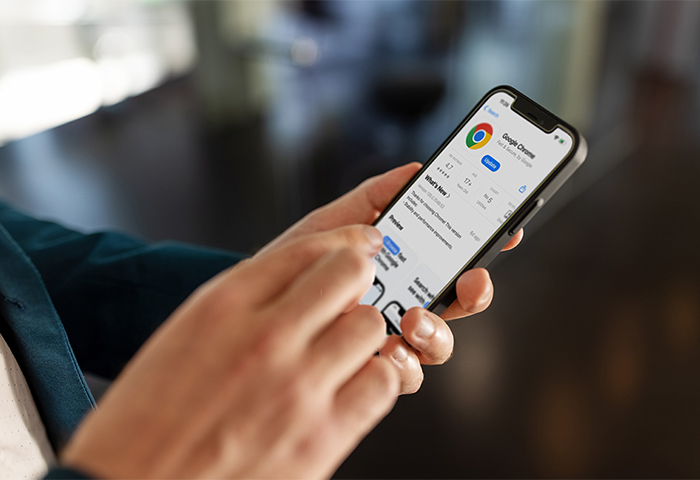How to block Safari pop-ups on Mac
Though sometimes helpful, pop-ups don’t have a great reputation. They can interrupt your work, slow page-load times, or even conceal malicious software. Thankfully, blocking pop-ups in Safari is easy, because the browser features a built-in pop-up blocker to help you manage them.
On Mac devices, Safari’s pop-up blocker lets you block or allow pop-ups for specific websites. This is an important feature in a blocker, because not all pop-ups are spam messages and some help you navigate and use sites more easily.
You can also choose to block or allow pop-ups on specific sites with AVG Secure Browser, a free browser that puts security and privacy at the forefront. You can surf the web anonymously and fully customize your ad blocker to allow only essential pop-ups. Plus, you’ll enjoy a host of additional privacy features.
How to block all pop-ups on Mac
Here’s how to stop all pop-ups on Mac using the Safari pop-up blocker:
-
Open the Safari browser and click Preferences under the Safari drop-down menu.

-
Select the Websites tab at the top and click Pop-up Windows on the left menu.

-
Use the Remove button to clear any site settings displayed in the “Configured Websites” box. Then click the “When visiting other websites” button and select Block.

You’re done — Safari pop-ups blocker is now active for all websites.
Like clearing your search history, deleting cookies, and removing extensions from Safari, blocking pop-ups can streamline and speed up your Mac, because it minimizes spam adverts and reduces other disruptive notifications.
How to disable pop-ups for specific sites on Mac
If Safari is blocking pop-ups that you want or need to see, you can customize your pop-up settings and block pop-ups for certain sites.
Here’s how to turn off pop-ups on specific sites on Mac:
-
Open Safari and click Preferences under the Safari drop-down menu.

-
Select the Websites tab and click Pop-up windows in the left menu. Set “When visiting other websites” to Allow to enable pop-ups as the default setting.

-
The website you’re on will be listed in the Currently Open Websites area. Click the drop-down menu and choose Block.

Pop-ups will now be blocked for the website you’ve chosen, and you can repeat the process for other sites you want to block. If you’re looking for more ways to curate a more minimalist browsing experience, you can also try setting the about:blank page as your browser homepage.
How to block pop-ups for an active website
You can set Mac’s pop-up blocker to disable pop-ups only for the website you’re currently using.
Here’s how to block pop-ups on Mac on the website you’re actively using:
-
Right click on the address bar of the current website and click Settings for this website.

-
In the settings window, select Block from the drop-down menu next to Pop-up Windows.

Safari will now block pop-up messages on that site, but your Mac will continue to allow pop-ups from other websites.
How to block Safari pop-ups on iPhone and iPad
Pop-ups also affect mobile devices, but fortunately Safari has a pop-up blocker for iPhone and iPad too.
Here’s how to block pop-ups on iPhones and iPads:
-
Go to Settings and tap the Safari app.

-
Scroll to Block Pop-ups and toggle the button on.

Just as computers can slow down over time, iPhones can get weighed down with more than just pop-ups. Take additional steps to clean and speed up your iPhone to keep it running at its best.
If you also use other browsers, you can manage pop-ups in Chrome, prevent pop-ups in Firefox, or get rid of them in Edge or IE. Using a browser cleaner tool will also help to speed up your device.
How to disable the pop-up blocker on Mac
Some pop-up messages are helpful, because they’re designed to improve your user experience by conveying helpful notifications or maintaining site functionality. So if you disable a pop-up blocker on Safari — meaning you allow pop-ups — you might improve your web browsing experience.
Here’s how to enable pop-ups on Mac:
-
Click the Safari drop-down menu and select Preferences.

-
Click the Websites tab at the top and select Pop-up windows from the left menu. If there are any individual site settings displayed in the “Configured Websites” box, delete them using the Remove button.

-
Set the “When visiting other websites” button to Allow.

And there you have it — all pop-ups are now allowed on Safari.
How to allow pop-ups for specific sites on Mac
If you want to unblock pop-ups only for sites you trust, you can customize your Safari preferences on Mac to allow pop-ups on certain sites, while leaving the pop-up blocker active for others.
Here’s how to enable pop-ups on Mac for specific sites:
-
Open Safari and click Preferences under the Safari drop-down menu.

-
Select the Websites tab and click Pop-up windows. The website you’re on will be listed in the Currently Open Websites area. Click the drop down menu and choose Allow.

Once you know how to turn off a pop-up blocker for specific websites, you can further customize your Macbook pop-up blocker by selecting “Block and Notify.” This will allow blocked pop-up windows to be manually displayed if you click the notification in the address bar.
How to allow pop-ups for an active website
Here’s how to disable the pop-up blocker on Mac for the website you’re actively using:
-
Right click the address bar of the website you’re actively using and select Settings for This Website.

-
In the settings window, find Pop-up Windows, and select Allow from the drop-down menu.

The Safari pop-up blocker will now allow pop-ups from the site you’re currently on — and any other websites that you’ve also unblocked. But Safari’s pop-up blocker will continue to eliminate pop-ups from all other sites.
How to disable the pop-up blocker on iPhone and iPad
On iOS, it’s not possible to make an exception to enable pop-ups from specific sites. If you want any pop-ups at all, you have to completely turn off the pop-up blocker on your iPhone or iPad.
Here’s how to allow pop-ups on iPhone and how to disable the pop-up blocker on iPad:
-
Go to Settings and choose the Safari app.

-
Scroll to Block Pop-ups and toggle the button off.

Are pop-ups in Safari dangerous?
Most Safari pop-ups aren’t dangerous and actually help you interact with the websites you visit more easily. Pop-ups can help you interact with a site, let you select preferences, display marketing messages, or show cookie consent forms. If you allow a site to display pop-ups in your browser, you can always clear your cache and disable cookies later to get rid of them.
But there are more dubious and even dangerous pop-ups that can contain false close buttons that actually run unexpected actions rather than close the window. A hover ad or an in-page pop-up appears as a layer in front of a browser screen, falsely presenting itself as the webpage. If pop-ups cause you to inadvertently install unwanted software, you can use a bloatware removal tool to get rid of any unnecessary apps.
The most dangerous pop-ups can harm your system and bombard your browser with an adware attack. Other suspicious pop-ups can function as malvertising ploys, riddling your system with all kinds of malware. Staying informed about Mac cybersecurity threats is essential to keep you and your system safe. If you think you may have already downloaded malware onto your system through a pop-up, remove the malware from your Mac immediately.
Pop-ups are one of the main reasons to get an ad blocker. But there are downsides to a blocker snuffing out pop-up windows completely. Some pop-ups are necessary to the proper functioning of a website. Other pop-ups contain important information or let you access deeper features of a website — for example, an installer for an application.
Another reason to be careful when using ad blockers is that they can sometimes block ads for products and services that are genuinely useful, like newsletter signup forms. With an ad blocker, you might also miss out on pop-up discounts or limited-time offers, so it may be better to selectively stop pop-ups in Safari.
How do I know which pop-ups to block?
Since some pop-ups are irritating and others are useful — there’s no comprehensive solution to the issue of how to remove pop-up ads on Mac. Consider allowing pop-ups on websites you know and trust, and blocking pop-ups if you’re unsure of a site’s safety. Always practice safe browsing habits and definitely block sites with suspicious pop-ups.
Stop pop-ups and browse safely with AVG Secure Browser
Pop-ups are a mixed-bag — some are annoying or even dangerous, but others are helpful and necessary. You can manage pop-ups easily and block the risky ones by using AVG Secure Browser, one of the best browsers for security and privacy.
 AVG Secure Browser automatically blocks ads to make browsing faster.
AVG Secure Browser automatically blocks ads to make browsing faster.
The free AVG Secure Browser can automatically block all ads. Or, you can set your preferences between Light, Basic, and Strict blocking. Plus, you can easily adjust all your privacy settings through one simple dashboard.
As cybersecurity threats become increasingly sophisticated, exploiting pop-ups and other web features, AVG Secure Browser — designed specifically with privacy and security at the forefront — will keep you safe. Get security and speed in one lightning-fast and buttery smooth browser.
/Signal-How-to-allow-and-block-pop-ups-in-Safari-Hero.jpg?width=1200&name=Signal-How-to-allow-and-block-pop-ups-in-Safari-Hero.jpg)



















 AVG Secure Browser automatically blocks ads to make browsing faster.
AVG Secure Browser automatically blocks ads to make browsing faster.













